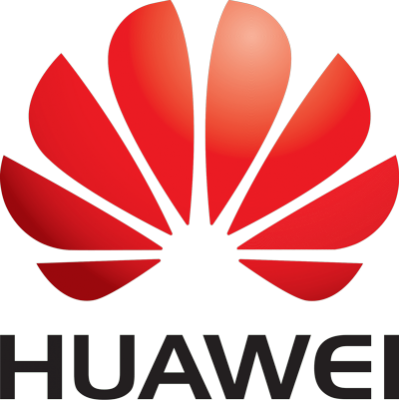Call for Workshop Technical Contributions
We are seeking a range of contributions to this year's ICC Machine Learning for Communications workshop which spans full technical papers in the proceedings, a unique and novel MLC dataset competition focused on combining vision and mmWave algorithms, and a focus on real-world implementation and validation through live demonstrations and implementation demos. Please see the calls for contributions below:
- Call for Technical Proceedings Full Papers
- Call for Dataset Competition Entries for Vision-Aided mmWave Wireless
- Call for Live-Systems and Prototype Demonstrations
We're looking forward to reviewing and including high quality contributions in all of these areas and seeing you all shortly in Dublin!
Call for Technical Proceedings Full Papers [view full cfp pdf]
Within a few years, machine learning has become a prominent and rapidly growing research topic within the field of communications, both in academia and industry. Machine learning applications in communication systems hold the potential to deeply transform wireless, optical, and other modes of communication engineering. In a discipline traditionally driven by compact analytic mathematical models, machine learning brings along a methodology that is data-driven and carries a major shift in the way wireless systems are designed and optimized. This brings with it both promise of more accurately representing complexities of the real world, as well as difficulties in providing the same levels of analytic performance guarantee and validation we are used to in communications systems. Research in this field is still largely in an exploration phase, but interest and speed of exploration and adoption has been significant. While machine learning has already been applied in a range of limited applications such as self-organized networks, sensing, cognitive radio, and resource allocation, these have largely focused on more constrained tasks and learning environments. In more recent years, the algorithms, tools, computational power, availability of data, and other enablers have led machine learning to more directly solve for larger tasks and signal processing functions within communications systems. This mirrors the significant breakthroughs within the field of machine learning in applications such as computer vision and natural language processing of embracing large datasets, concurrent tensor processing, and end-to-end learning techniques in order to effectively learn solutions to high complexity tasks. This workshop seeks to provide a first-tier platform for the dissemination of fundamental and applied research results in the exciting field of machine learning for communications.
Beyond providing a platform for the latest high-quality results in the field of machine learning for communication systems and encouraging fruitful and controversial discussions on the core challenges and prospect of the field, this workshop seeks to promote and encourage open-ness, rigor, and reproducibility. As data measurement, processing, and learning systems are often significantly more intricate and specialized than compact analytic models, they often contain numerous details regarding the composition of the dataset, hyper-parameters and processing stages used within the learning and inference process, and countless additional implementation details which are difficult to compactly document within a concise and compact paper, but are easily captured within open software and data publications. This has become the norm in a number of machine learning centric venues (e.g. NeurIPS, ICML), and rigorous new algorithmic work requires the publication and verification of open research. To embrace this within the IEEE ecosystem, this workshop is focused on directly supporting open-ness within machine learning for communications research, and asking researchers to share datasets, code, implementations, and baselines used throughout their work to help facilitate reproducibility and quantitative comparison by others within the field who may be able to critique, leverage, or extend research when it is conducted in such an open and reproducible manner.
As such, we invite the submission of novel, rigorous machine learning for communications research papers on new applications, ideas, and approaches along with the joint publication of datasets and source code required to reproduce the work by others. To mirror this spirit of openness and to help accelerate the research process, IEEE has offered to provide complementary open-access IEEE Explorer publication of articles at this workshop which meet these criterion of open and reproducible reference data and implementations, and will offer to host large datasets on the IEEE MLC dataset server which allows reproducing, modifying, and extending the work. We invite authors to embrace widely used tools such as GitHub and/or GitLab for hosting their verifiable source code, baselines and implementations, embrace repositories such as ArXiv for early pre-publication feedback of works, and to embrace open source tools such as GNU Radio and iPython notebooks.
We invite submissions of unpublished works on the application and theory of machine learning to communications. Below, we provide a non-exhaustive list of possible topics. We do not restrict the type of machine learning techniques.
- Machine learning driven design and optimization of modulation and coding schemes
- Machine learning techniques for channel estimation, channel modeling, and channel prediction.
- Machine learning based enhancements for difficult to model communications channels such as molecular, biological, multi-scale, and other non-traditional communications mediums
- Transceiver design and channel decoding using deep learning
- Machine learning driven techniques for radio environment awareness and decision making
- Machine learning for Internet of things (IoT) and massive connectivity.
- Machine learning for ultra-reliable and low latency communications (URLLC).
- Machine learning for Massive MIMO, active and passive Large Intelligent Surfaces (LIS).
- Distributed learning approaches for distributed communications problems
- (Deep) Reinforcement Learning and Policy learning for resource management & optimization
- Reinforcement Learning for self-organized networks and AP/BTS optimization
- Machine learning techniques for non-linear signal processing
- Low-complexity and approximate learning techniques and power reduction applications
- Machine learning for edge Intelligence, sensing platforms, and sense making
- Algorithmic advances in machine learning for communication systems
- Advancing the joint understanding of information theory, capacity, complexity and machine learning communications systems
- Machine learning methods for exploiting complex spatial, traffic, channel, traffic, power and other distributions more effectively using measurement vs idealized distributions.
- Compression of neural networks for low-complexity hardware implementation
- Unsupervised, semi-supervised and self-supervised learning approaches to communications
Submitted papers will be reviewed by the organizing committee based on objective criteria that include originality, contribution, practical impacts, novelty, and readability.
Authors of accepted papers are strongly encouraged to share their source codes and data through public open access. Authors of accepted oral papers are also expected to participate in demonstrative sessions to showcase their exciting results to a wider audience.
Important dates for Technical Papers
Paper submission deadline: January 27, 2020
Notification of acceptance: February 20, 202
Camera-ready papers: March 1, 2020
Call for Dataset Competition Entries for Vision-Aided mmWave
In this year’s ICC'2020 Open Workshop, we are also excited to announce an open-dataset challenge focused on the unique task of Vision-Aided Beam Tracking for mmWave Systems. This challenge will adopt the recently developed ViWi Dataset. Additional details of the competition and submission will be provided in early February 2020 via the workshop webpage: https://icc2020.ieee-icc.org/workshop/ws-19-open-workshop-machine-learning-communications.
The workshop expects to announce results at the ICC’2020 on a hold-out test set and invite competitors to share their approaches and experiences.
The dataset competition schedule is still pending and will be available early February.
Call for Live-Systems and Prototype Demonstrations
We invite the submissions of live demonstrations of machine learning based communications systems for verbal and physical demonstrations and presentation as part of the program. We would like for prototype ML-Communications systems and capabilities to obtain visibility and discussion throughout the program, while not necessarily requiring the presence in the proceedings as a full technical paper submission. We expect to provide an area within the program which will highlight the demonstration and prototype submissions received as a key portion of the workshop. For consideration please submit a 1 to 3 page PDF containing an abstract or extended abstracting describing your proposed demonstration/prototype system to icc20-openmlc-submissions@ieeemlc.org by March 1, 2020!




.png%3Fitok=tRZd6hUQ)
.png%3Fitok=i1NV_JCh)


